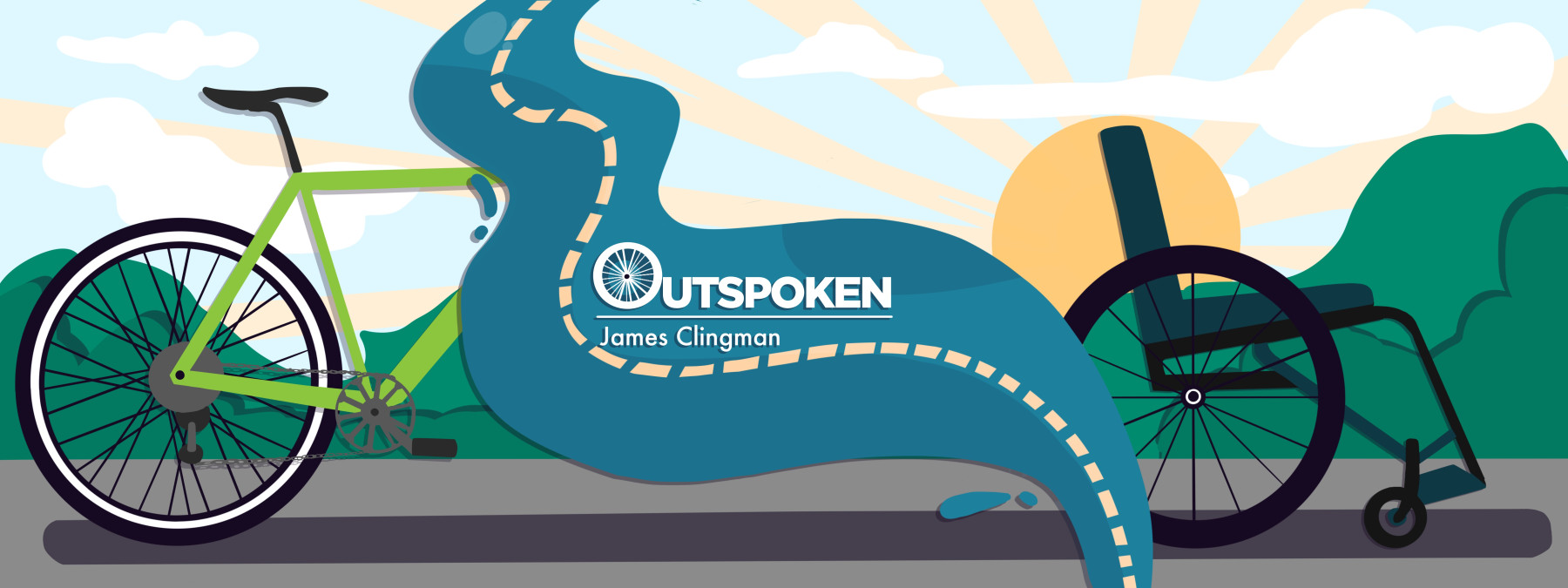What a Month in the Hospital Taught Me About ALS Care
Columnist James Clingman shares tips and observations on patient care

“I don’t know what that is.” “I don’t know how to use that.”
These are a couple of the statements that ALS patients do not want to hear when a medical professional walks into the room. As a matter of fact, no patient wants to hear them.
Having spent the month of October in a specialty hospital to give my wife a respite, I learned a bit more about caring for an ALS patient. Above all, as a patient, I hope I taught a little about it as well.
Before going any further, I want to make clear that I truly appreciated the staff at the facility. They were willing to do what they could, after they knew how to do it.
So despite our few conflicts, they tolerated me and I was patient with them. My critique of those 30 days is grounded in appraisal, willingness to learn, and sharing what is learned. Nearly every day, someone came into my room who had not been thoroughly briefed on my particular situation. I learned that, at a minimum, there were gaps in the communication between shifts.
Better communication
In terms of learning from me or merely listening to me, some folks proceeded with a one-size-fits-all care routine, which sometimes caused unnecessary pain. Sometimes I had to yell “Stop!” or “Wait!” to get their attention.
I had to tell almost everyone who came to turn me over that my arms should be moved to my chest to keep them from being painfully stuck under my body or against the bed rail.
Finally, my observations on sharing the information learned with the next person on duty were graphically illustrated when staff came in just after changeover, yet said they didn’t know various factors about me. I cannot begin to understand what noncommunicative ALS patients endure simply because their caregivers do not share information about them.
When there is a shift change, I know staff members give reports, and I believe they have “huddles” as well. But in my case, it seemed that all of the necessary information was not passed on. Let me again make it clear that this is not an indictment of the staff or the hospital. Where would we be without them? This is my humble assessment of my isolated experience. I am practicing what I am preaching in this column. Bringing up problems is easy; offering solutions helps to solve the problems.
My mission is to advocate, inform, and heighten the awareness of ALS among laypeople and professionals. It’s the same for other columnists at BioNews (the parent company of this website), a couple of which have diseases I had never heard about before reading about them here.
So, here goes. My suggestions are not a panacea, and I invite more from other ALS patients, because we all have different needs. Most important to me is compassion — enough to fully inquire about a prospective patient, to be willing to listen to new information, and to share that information with colleagues. Knowledge, if narrowly channeled, loses its greater effect and value. For the most part, people don’t care how much you know until they know how much you care.
Other practical solutions include ALS familiarity for anyone assigned to bedside care, peer-to-peer exchange suggestions, CEU credit for knowledge acquired on specific diseases, patient-selected aides and nurses of the week, and discussions with patients about likes and dislikes, preferences and peeves, comforts and concerns. Knowing how to put on a condom catheter would also be very good.
ALS comes with discomfort, pain, and unpleasantness, but these can be mitigated by a modicum of compassion and a willingness to listen to the patient. My hope is for this column to be a positive addition to conversations around patient care among hospital professionals and home healthcare agencies alike.
My final suggestion is for patients in the U.S.: Recognize that our attendants have lives, too. Let’s make a concerted effort to be kind and concerned about them. Let’s reciprocate by being patient patients.
Note: ALS News Today is strictly a news and information website about the disease. It does not provide medical advice, diagnosis, or treatment. This content is not intended to be a substitute for professional medical advice, diagnosis, or treatment. Always seek the advice of your physician or other qualified health provider with any questions you may have regarding a medical condition. Never disregard professional medical advice or delay in seeking it because of something you have read on this website. The opinions expressed in this column are not those of ALS News Today or its parent company, BioNews, and are intended to spark discussion about issues pertaining to ALS.








Comments
Beth
Hello Mr. Clingman,
I agree with you, I don't think they communicate well enough between shifts about our, pALS, needs. I've been living with ALS for 30 years and went to the ER last October with a gallbladder attack; the last time I was in the hospital was 31 years earlier to have my son. When I had finished my 1st surgery, they realized I could not push the call bell so they put me in a room near the desk so I could call out & be heard. My 2nd surgery happened & I don't think I could have been further from the desk! Thankfully my son, my mother were able to stay overnight to help with the inevitable midnight visits from the staff. I can be understood with some patience on the listeners part, they were always harried & hurried, my son was a huge help! My final surgery put me in the ICU, which meant I was on my own from 8p to 12N trying to make me wishes known i.e. putting my arms on my chest when turning. When I went to the step down floor, we told them I could push the call button, they did try to MacGyver a call button with no luck! I was thankful when it was noontime & nervous when 8p approached. I can't imagine not being able to communicate & be in the hospital. I don't plan on going to the hospital again but I will be better prepared!
James P. Gerner
The first thing caretakers need to know is that even though we are completely immobilized, we still have 100% of our touch and pain receptors. This means that if they manhandle us, we are feeling pain even though we can't recoil from it. In the situation of a patient who has had a tracheostomy, we cannot even make a noise to indicate pain. This calls for two things: first, extra patience and care in handling, rolling or moving us, second, a means of communication. For me, the answer is a blink code, one blink for yes, two blinks for no, three blinks for stop, four blinks for back up, and five blinks for go get the doctor or get my wife.
The caretaker must slow down and ask questions like "are you okay or is this okay " and then take the time to see the blink response and use it to plan the next step. I would say ninety percent of my ICU nurses knew none of this, so, if you are going to the hospital for any procedure that might require you to stay overnight, you should print out something like the above and pin it to your chest. That way they will have no excuse for abusing you.
Andrea Pauls Backman
Jim, thank you for sharing these helpful communication tips for someone with ALS in the hospital or experiencing a change in caregivers. We at Les Turner ALS Foundation developed the My ALS Communication Passport to Quality Care to address this very need. Feel free to use and share with others. https://lesturnerals.org/wp-content/uploads/2022/07/BA-LTAF-CommunicationPassport_2022_Digital-02.pdf